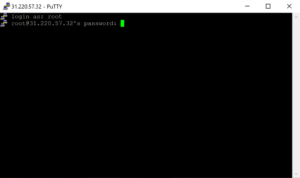The Linux Zip package is a command-line utility that allows users to compress and decompress files in the ZIP format. It is a popular tool used for creating, managing, and extracting ZIP archives in Linux systems.
What is Zip?
ZIP is a file format used for data compression and archiving. It is widely supported and can be used to compress multiple files and directories into a single archive file. ZIP files are commonly used for file distribution, backup, and storage purposes.
Features and Benefits
The Linux Zip package provides several features and benefits:
- Compression: It allows users to compress files and directories to reduce their size and save disk space.
- Archiving: It enables users to create archives of multiple files and directories for easy storage and distribution.
- Encryption: It supports password-based encryption to protect sensitive data in ZIP archives.
- File Integrity: It includes checksums to ensure the integrity of compressed files.
- File Compression Levels: It provides different compression levels to balance between file size and compression speed.
- File Exclusion: It allows users to exclude specific files or directories from the compression process.
Supported Operating Systems
The Linux Zip package is available for various Linux distributions, including:
- Ubuntu
- Debian
- CentOS
- Fedora
- Arch Linux
To install the Linux Zip package on these supported operating systems, you can use the package manager specific to each distribution. Our Linux VPS have zip package preinstalled and ready to use.
Installation Guide
Here is a step-by-step guide on how to install the Linux Zip package on supported operating systems:
Ubuntu/Debian
sudo apt-get install zip
CentOS/Fedora
sudo yum install zip
Arch Linux
sudo pacman -S zip
Basic Usage
The Linux Zip package provides several commands for creating, managing, and extracting ZIP archives. Here are some commonly used commands:
Create a ZIP Archive
zip archive.zip file1.txt file2.txt directory/
This command creates a new ZIP archive named “archive.zip” and adds “file1.txt”, “file2.txt”, and the “directory” directory to the archive.
Add Files to an Existing Archive
zip -r archive.zip file3.txt
This command adds “file3.txt” to the existing “archive.zip” archive.
Extract Files from an Archive
unzip archive.zip
This command extracts all files from the “archive.zip” archive.
List Files in an Archive
unzip -l archive.zip
This command lists all files and directories contained in the “archive.zip” archive.
Similar Packages
There are several other packages available in Linux that provide similar functionality to the Linux Zip package. Some of these packages include:
- Tar: Tar is a utility used for creating and manipulating tape archives. It can also compress files using other compression algorithms like gzip and bzip2.
- 7-Zip: 7-Zip is a popular open-source file archiver that supports various compression formats, including ZIP.
- RAR: RAR is a proprietary file archiver that supports compression, archiving, and encryption.
Automation Scripts
Here are three example scripts that demonstrate the usage of the Linux Zip package in automation:
Script 1: Compress Directory
#!/bin/bash
DIRECTORY="/path/to/directory"
OUTPUT_FILE="archive.zip"
zip -r $OUTPUT_FILE $DIRECTORY
This script compresses the specified directory into a ZIP archive.
Script 2: Extract Archive
#!/bin/bash
ARCHIVE="archive.zip"
OUTPUT_DIRECTORY="/path/to/output"
unzip $ARCHIVE -d $OUTPUT_DIRECTORY
This script extracts the specified ZIP archive into the specified output directory.
Script 3: Add Files to Archive
#!/bin/bash
ARCHIVE="archive.zip"
FILES=("file1.txt" "file2.txt")
for file in "${FILES[@]}"
do
zip -u $ARCHIVE $file
done
This script adds multiple files to an existing ZIP archive.
List of Commands and Constants
| Command/Constant | Description |
|---|---|
| zip | Compress files and directories into a ZIP archive |
| unzip | Extract files from a ZIP archive |
| -r | Recursively add files and directories to an archive |
| -l | List files and directories in an archive |
Conclusion
The Linux Zip package is a powerful command-line utility that allows users to compress, manage, and extract ZIP archives in Linux systems. It provides a wide range of features and benefits, including compression, archiving, encryption, and file integrity. The package is widely used by developers, system administrators, and users who need to compress and distribute files in the ZIP format. It is an essential tool for file management and storage in the Linux ecosystem.

This article incorporates information and material from various online sources. We acknowledge and appreciate the work of all original authors, publishers, and websites. While every effort has been made to appropriately credit the source material, any unintentional oversight or omission does not constitute a copyright infringement. All trademarks, logos, and images mentioned are the property of their respective owners. If you believe that any content used in this article infringes upon your copyright, please contact us immediately for review and prompt action.
This article is intended for informational and educational purposes only and does not infringe on the rights of the copyright owners. If any copyrighted material has been used without proper credit or in violation of copyright laws, it is unintentional and we will rectify it promptly upon notification. Please note that the republishing, redistribution, or reproduction of part or all of the contents in any form is prohibited without express written permission from the author and website owner. For permissions or further inquiries, please contact us.



